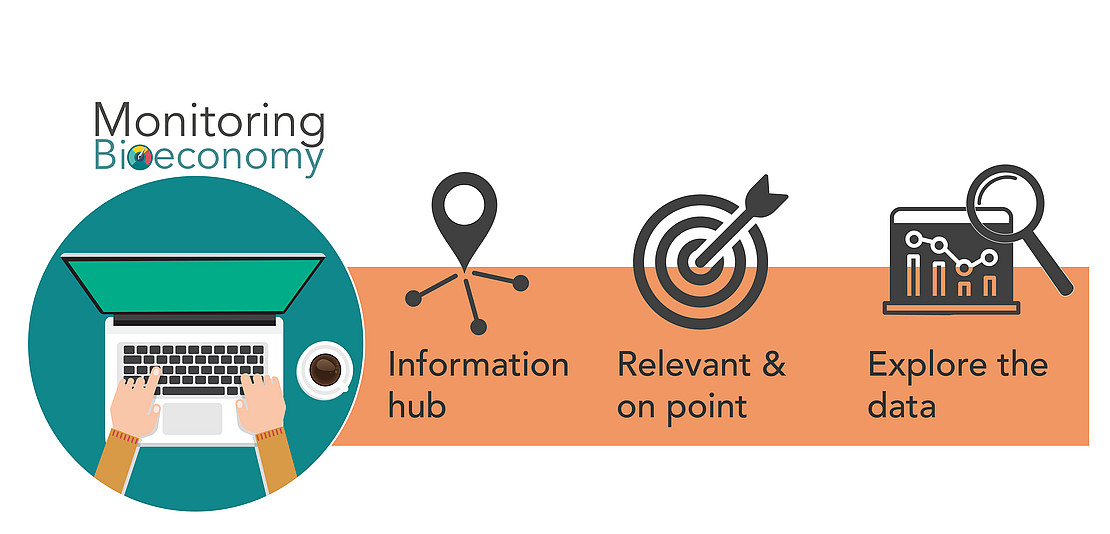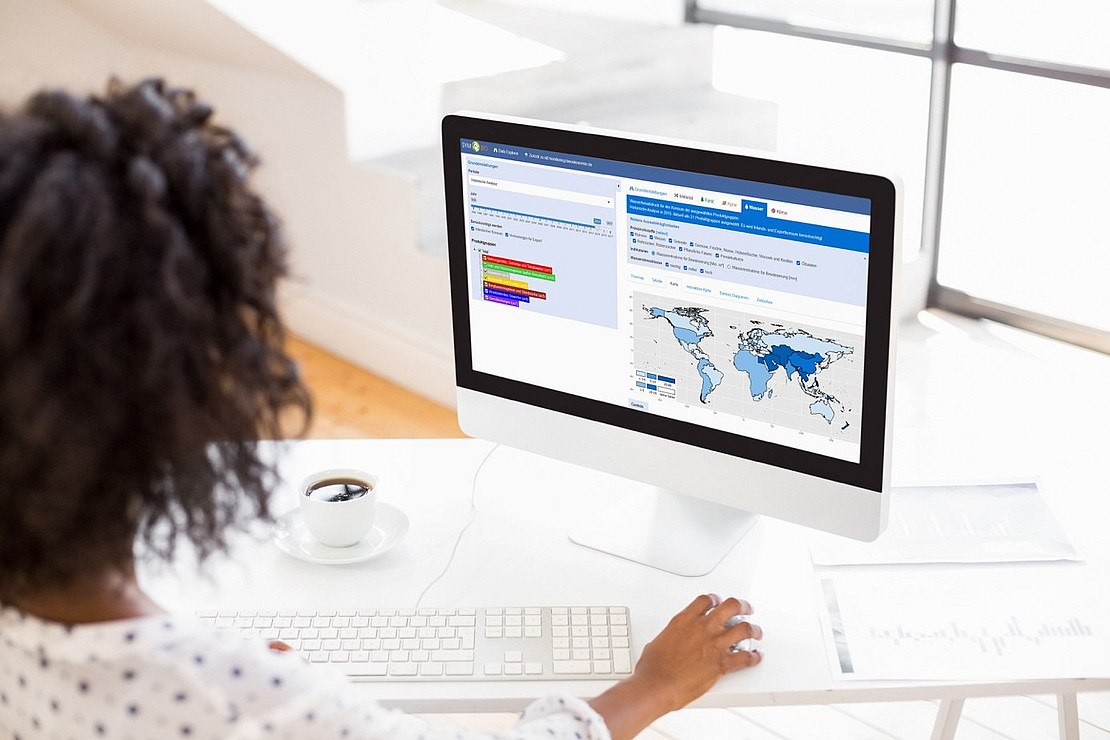New platform sheds light on the bioeconomy


Harnessing innovation to build a bio-based, climate-neutral and circular economy – that is the goal of Germany’s National Bioeconomy Strategy. But, is Germany is on track, and does development align with the overarching Sustainable Development Goals? The use of biomass can lead to trade-offs that are not always obvious, especially if problems are shifted abroad or over time. Monitoring is needed to uncover the links between consumption practices in Germany and impacts (environmental and social) across both the planet and time. "We show where and when the prefix 'bio' actually means progress," explains Prof. Dr. Stefan Bringezu, coordinator of the SYMOBIO 2.0 project, which is funded by the German Federal Ministry of Education and Research (BMBF).
Origin, use and sustainability
Where does biomass come from, how much is used, and for what? What are the potentials, trends and drivers? What types of competition and conflict block progress – and how can they be avoided to make biomass use more sustainable? How big are the footprints of the German bioeconomy? These and other questions are considered in an understandable, scientifically-robust and balanced way at monitoring-bioeconomy.org. In addition, visitors to the website can set parameters and interact with the data themselves to explore trends.
Holistic overview
From case studies in remote sensing to footprint analysis, the SYMOBIO research team applies multiple methods (monitoring-bioeconomy.org/en/tools) to assess Germany's bioeconomy transition. The website is built on more than five years of research from within the SYMOBIO consortium, together with key results from current monitoring projects and pivotal studies from within Germany, the EU and at a global level. Combined, these sources depict the state-of-the-art of the research landscape and portray a holistic perspective. Both opportunities and risks are weighed in a balanced way.
Knowledge transfer for policy makers
The target audience is non-scientists. "The new website breaks down complex data into easily-understood graphics and key messages. In this way, it builds a bridge between science and all stakeholders," emphasises Dr. Meghan Beck-O'Brien, coordinator of the website content. The aim of the website is to support policy makers and other decision-makers with scientific expertise. The website provides key insights for the development of new strategies such as the National Biomass Strategy (NABIS), which is currently being developed by the Federal Ministry for Economic Affairs and Climate Action (BMWK), the Federal Ministry of Food and Agriculture (BMEL) and the Federal Ministry for the Environment, Nature Conservation, Nuclear Safety and Consumer Protection (BMUV).
The website is currently available in English. A German version will be online by early summer.
SYMOBIO 2.0 – a collaboration of the following partners:
- Center for Environmental Systems Research (CESR)
- Kassel Institute for Sustainability
- Grassland Science and Renewable Plant Resources (GNR)
- Helmholtz Centre for Environmental Research GmbH (UFZ)
- Deutsches Biomasseforschungszentrum (DBFZ)
- Institute of Economic Structures Research Research (GWS)
- Institute for Applied Ecology (Öko-Institute)
- German Center for Integrative Biodiversity Research (iDiv)
- Global Risk Assessment Services (GRAS)
- Institute for Energy and Environmental Research (ifeu)
- Fraunhofer Institute for Systems and Innovation Research (ISI)
Projects involved in the creation of the website:
- Consolidating Systemic Monitoring and Modelling of the Bioeconomy (SYMOBIO 2.0) symobio.de, Coordinators: Dr. Meghan Beck-O'Brien and Prof. Dr. Stefan Bringezu, Center for Environmental Systems Research (CESR), University of Kassel, funded by the German Federal Ministry of Education and Research (BMBF)
- Development of a Systematic Bioeconomy Monitoring - Consolidation Phase (MoBi II)
thuenen.de, Coordinator: Dr. Jörg Schweinle, Thünen Institute, funded by the Fachagentur Nachwachsende Rohstoffe e.V. (FNR) - Further Development of the "Bioeconomy Monitoring System" with Special Consideration of Precautionary Environmental Protection(MonBio), Coordinator: Aaron Best, Ecologic Institute, ecologic.eu, funded by the German Environment Agency (UBA)
Press contact:
Verena Pommerenke, Research Communication and Public Relations SYMOBIO 2.0,
Center for Environmental Systems Research (CESR), University of Kassel,
verena.pommerenke@uni-kassel.de
Meghan Beck-O'Brien, Coordinator of the website content,
Center for Environmental Systems Research (CESR), University of Kassel,
meghan.beck.obrien@uni-kassel.de
